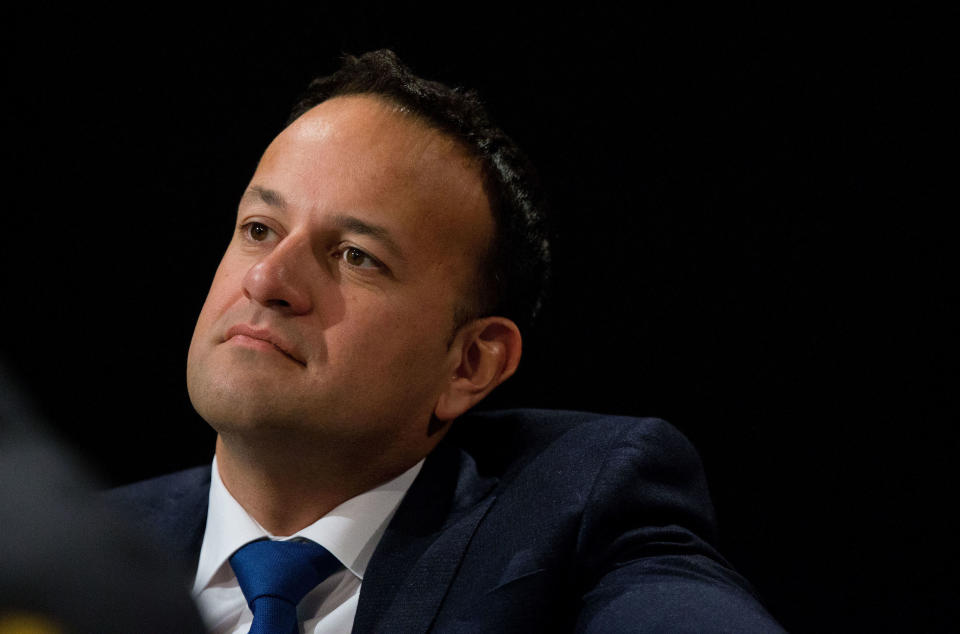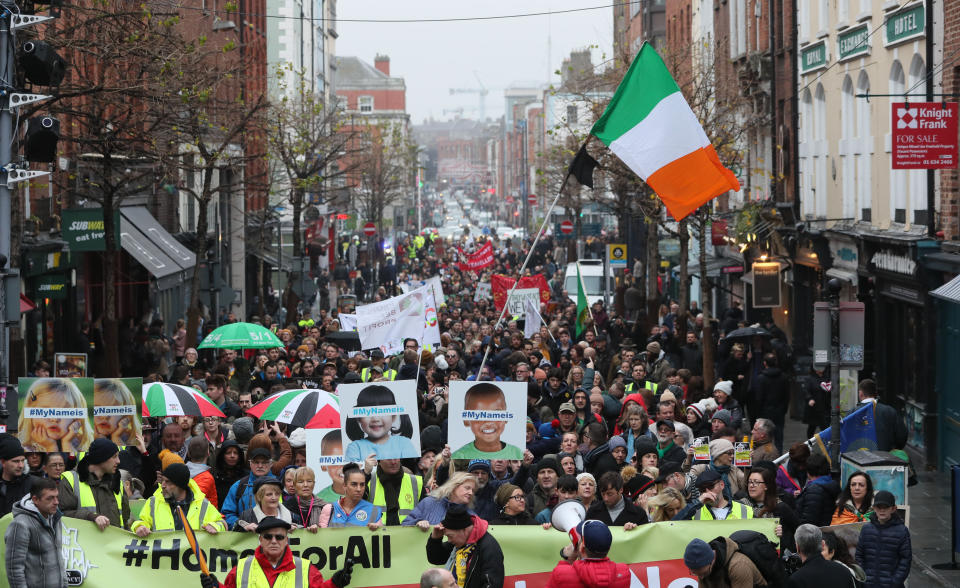Why Ireland’s leader said housing was 2018’s biggest challenge, not Brexit

When Irish prime minister Leo Varadkar, in a turn-of-the-year interview, said that Ireland’s colossal housing crisis was “easily the biggest challenge” that his government faced in 2018, he hadn’t forgotten about Brexit.
From the perspective of staunch Brexiteers like Jacob Rees-Mogg, Varadkar and his government are doing their damnedest to foil the grandest ambitions of a post-Brexit UK.
Yet after years of simmering below the surface, the country’s homelessness crisis and wider housing problem easily dominated the headlines in 2018 just as much as the UK’s looming exit from the European Union.
Yes, Varadkar said in the interview, Brexit was the “elephant in the room.” And he’s under no illusion about the degree to which Brexit could impact Ireland: His government has already said that a no-deal Brexit would have “profound political, economic and legal implications” for the country.
But few Irish people took to the streets about Brexit last year. In comparison, hordes of protestors in recent months commanded Varadkar’s government to take action about housing.
They occupied vacant buildings, stopped traffic and orchestrated clever social media campaigns. In many cases, they were joined by a roster of complainants from Ireland’s business, political, and policy-making communities.
READ MORE: The issue gripping Ireland right now isn’t just about Brexit
Just before Christmas, the forceful eviction of a farmer and his family from a house in County Roscommon led to angry debate in Ireland’s parliament and some 2,000 taking to the streets in protest of the move — as well as a retaliatory attack against security guards protecting the house by dozens of masked men.

Some 29,000 borrowers in Ireland are in long-term arrears, having accumulated at least two years worth of missed payments. Research conducted by the Irish Central Bank suggests that up to half of those in long-term mortgage arrears are at risk of having their homes repossessed.
Though the bank has introduced new rules that seek to prevent financial institutions from too swiftly repossessing homes — to encourage them to do deals with borrowers instead — this research has been used to suggest that up to 14,000 Irish people could be at risk of losing their homes.
READ MORE: Irish government announces new Airbnb restrictions amid housing crisis
At the same time, some 10,000 Irish people are in emergency accommodation — a figure that Varadkar hopes will tail off this year.
“I hope we’ll look back in 2018 as the year in which the number of people homeless and in emergency accommodation stabilised and in 2019 is the year in which the number falls,” he said.
But research conducted by an Irish charity points to the fact that more than two-thirds of homeless families lost their last stable home in the private rented sector. Rents in Dublin, Ireland’s capital, are at an all-time high.
And data published by property website MyHome.ie on Wednesday suggests that property prices will increase by 5% in 2019.
One solution, of course, is to build more homes. Around 20,000 new homes were built in 2018, the highest in a decade, Varadkar said.
And he pointed to plans to increase the stock of social and affordable housing social housing by 8,000 in 2019.
Even then, Brexit could change the assumptions of his government when it comes to the public finances, he warned.
“But we are in a good position to absorb any shocks, should there be a shock to the economy, because the public finances are very much in good order.”

 Yahoo Finance
Yahoo Finance 
